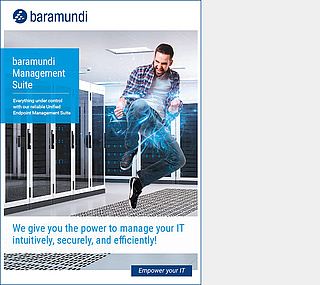Bring Your Own Device (BYOD)
Bring Your Own Device refers to the possibility of using private devices for company purposes and thus having access to protected company data. This approach contrasts with the long-standing traditional practice of employees being provided with devices by their employer (Corporate Owned, Personally Enabled, COPE). Other concepts are COSU and COBO.
BYOD has already become particularly widespread in technology-intensive sectors such as information technology, software development and media, as these industries are already working in an agile and flexible manner. BYOD is already widespread in North America and the UK, in particular.
Using private smartphones and laptops for business purposes
For example, employees can use their smartphones to access business emails, synchronize calendars and even run business applications. Personal laptops or tablets can also be used to complete tasks. This allows employees to work seamlessly on the go. Employees can use their own devices and don’t have to get used to a different device or platform. The company can also avoid the cost-intensive purchase of devices.
Data separation and cybersecurity for BYOD devices
BYOD holds the potential for high employee satisfaction. However, special protective measures are required to ensure IT security in the company at the same time. After all, if unsecured personal devices access sensitive company data, the risk of security incidents increases enormously.
With the help of MDM and EMM solutions, IT admins can manage the special containerization or data separation of devices and thus isolate business applications and data on personal devices. This ensures that private applications do not gain access to sensitive information.

Management Suite




